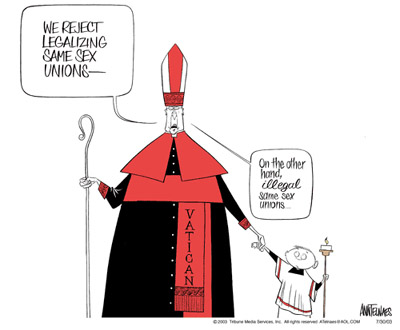Not bad. But if I were Nolan, I'd phrase it like this: Joker thinks we're fundamentally evil, that our "goodness" is merely an illusion that only takes the right stimulus to reveal. He misses the fact that we are redeemable because he mistakenly believes that the opposite of this situation is Absolute Good. The Joker is dealing in Absolutes where the middle ground is an illusion. He doesn't really believe in moral ambiguity (the middle ground). The Joker is dealing with a strawman argument, because he thinks that Batman (and most everyone else) believes in Absolute Good, and all he has to do in order to show them their error is to show people being evil.For Nolan, the villains are not wrong to believe that people are corruptible. They are wrong to believe that people are past redemption.
... [Nolan] works in shadows; he sees the world for all its darkness and duality. But he fights to show us the rich, resonating strains of worth that run through our Gotham.
I'm not sure if Nolan's own interpretation is that complex, but if so, then I'll concede the depth which you're claiming is in there.
I'm having a hard time thinking of Batman as "tyranny." He doesn't dictate the rules, he merely violates them. I like the Team America analysis of him better. He's a pragmatist, rather than an idealist. That doesn't mean that he doesn't have ideals/values, just that he doesn't let contradiction or simplistic idealism stop him from doing something effective.Ron Burgunihilo wrote:The tyranny is Batman himself, a vigilante who violates every rule in the book in order to protect Gotham from Joker's limitless chaos. Some choices still stain the hands even when there are no other ready options.
As I said ... in the Team America interpretation, the ferry scene makes more sense to me and I can see some worth in it. However, if the choice is between the unambiguous "humans are fundamentally corruptible" (Joker's view) or "humans are basically good," (naive, idealistic) on the one hand, and total moral ambiguity on the other, then I think we're talking about a false choice and the ferry scene fails. However, if the point is that absolute Good and Evil are too simplistic, and yet we can still be unambiguously good (little "g-"), then it's a success.
I think we can still be a force for good, unambiguously, by violating the rules and being dicks. In other words, there are still values in the absence of absolute Good and Evil. Nihilism isn't the opposite of absolutism, it's just another form of absolutism. There is a middle ground where we can find a meaning, a human meaning. And that's no illusion, nor is it ambiguous. It's just messy.
If Nolan is saying that, then I'll give him credit for being profound and deep, and I simply missed it until now. If not, then I'll take all that credit for myself, and admit it's merely my own view.
Eh, better than being an asshole or a pussy about it.Ron Burgunihilo wrote:I do apologize for being such a dick about it a year ago.


